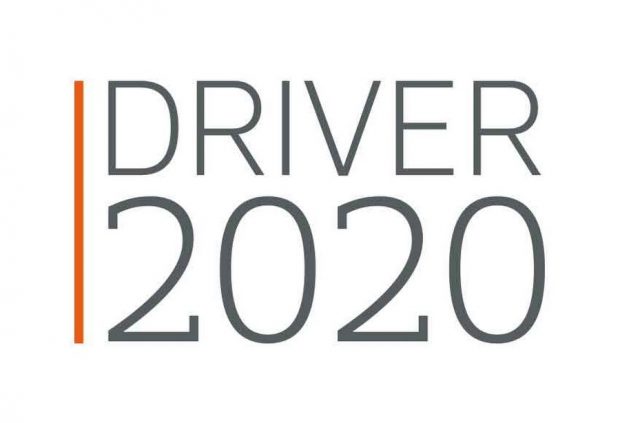
In January 2019, DVSA told you about the launch of the research project Driver 2020. The project is being run by The Transport Research Laboratory (TRL) and the Department for Transport.
In this blog post, I'd like to tell you more about the aim of the research and how you can help.
The aim of Driver 2020
Driver 2020 has been designed to improve learner and novice driver safety, by improving their skills, knowledge and attitudes.
The work you do to teach learners the skills they need to drive safely is vital. But it remains the case that newly qualified drivers are more likely to be involved in a serious or fatal accident than anyone else.
The interventions Driver 2020 has developed aim to explore different ways of complementing the work of you already do.
Who can sign up?
At this stage of the research we're looking for learner drivers, aged between 17 and 24, who have just started having driving lessons.
Learners who sign up for the study:
- may receive free additional training and e-learning, or be asked to download an app to help complement their learning
- will be paid to complete some surveys once they have passed their test and have the chance to win prizes which include a year of free car insurance, iPads, and shopping vouchers
Over the next year or so, we need to recruit over 12,000 learner drivers to take part. This is where you come in!
What’s involved?
We'll be trialling 5 interventions aimed at learners and novice drivers in a series of controlled tests. These should work alongside the tuition they already receive from you.
3 of these interventions are aimed at learner drivers:
- using a logbook to increase the amount of pre-test on-road experience
- training hazard perception skills through e-learning, delivered throughout the learning process and just after test pass
- a classroom-based educational intervention to reduce road safety risk of young and novice drivers
Any pupil who registers will either be assigned to one of these groups at random, or to a control group who have no extra specific intervention.
The other 2 interventions, mentoring agreements and telematics, are aimed at people who have recently passed their test.
How you can help
The most important thing you can do to help is tell your pupils about the research, and encourage them to visit the driver 2020 website to find out more.
We've also published a video which explains more about the research - I'd encourage you to share this with your pupils.
If any of your pupils are asked to be part of the logbook intervention, they'll be encouraged to use one to keep a record their training and they may ask you to support them with this.
It's up to you how you engage with this if asked.
You have a massive influence over your pupils and you play an important role in encouraging them to sign up to the research.

7 comments
Comment by Steve Barrs posted on
I, like a few other instructors took part in the last pilot scheme for the new sat nav test. When it was first trialled at the first meeting we were told it was being trialled to see if it would reduce accidents/fatalities in newly qualified drivers and that the data collected from the candidates that took the Sat nav test would be compared with the same amount that took the standard L test.
They compared 1,000 passes on the Sat nav test with 1,000 passes of the standard L test and gave a cash incentive to encourage all passes to fill in the data forms 6 months after passing.
We were also told that when all the data was in and found a success it would be implemented.
Unless I've missed them, to date I've not seen these data results, all that's been published was some wishy washy stats saying things like 8 of 10 candidates felt better prepared for country roads etc.
What we really needed to know is:
1. Was there a reduced rate of accidents with the candidates that took the Sat nav test compared to the ones that didn't.
2. Was there less injuries.
3. Was there less fatalities.
This is the sort of data we want to see as this would give us a true reflection of whether the pilot sat nav test was a success and this is what we were told would happen!
Saying that I do approve of the new sat nav test as we should always look at ways of making the road safer.
Comment by Julia (DVSA) posted on
Hi Steve
Thanks for your comment and for helping with the new driving test trail.
The Transport Research Laboratory published the results of the trial in August 2017 and you can find it on their <a href="https://trl.co.uk/sites/default/files/PPR828%20Transforming%20the%20practical%20driving%20test%20-%20Final%20report.pdf">website</a>.
The findings from the report suggest candidates passing the new driving test:
• had a good basis for independent driving and decision making
• had more confidence that they would be a good, safe driver
• had more confidence that they could use a sat-nav safely while driving
• spent more time training on fast dual carriageways, which helps better prepare them for driving on their own
• had lower collision risk post-test if they spent time with a driving instructor on country roads or driving independently while learning
In terms of the impact of the new driving test on road casualties, we won’t know the true extent until the 2018 casualty statistics are published in 2020.
Comment by Alan Shirley posted on
This is a good step forward and should be welcomed by all ADI's. The biggest problem is with public / parental attitude towards the learning process. As an instructor is only 'recommended' not mandatory and the need, for many, to minimise the cost of learning, it is not compatible with the need to take more time and expense learning. You have identified what is missing in the learning process (ie experience and attitude) but it may be a good idea to stiffen up the test itself so as to in some way ensure new drivers reach an even higher standard before being allowed out on their own. This would also be a low cost intervention. A very simple first step would be to reduce the number of 'driver faults' to at least as low as 10. I welcome anything that assists improve driving standards and look forward to assisting with this latest initiative.
Comment by Ian. posted on
What's really needed is follow-up assessments every 4/5 yrs for all qualified drivers. You can change teaching methods and make the test harder but most drivers forget or can't be bothered to stick to the rules once they pass. Every new driver should be re assest after one year and have extra lessons if necessary . Then every 4/5 yrs thereafter.
Comment by kelly isherwood posted on
the use of Apps is what is causing drivers to perform more poorly instead of learning the highway code, people now learn the answers to a question and NOT the knowledge behind the question, DVSA needs to make the learning of the Highway code the focus, also all the driver aids dumb down driver ability, this is not good plan long term, we should also be considering a mental competency test for any prospective learner ,
Comment by Julia (DVSA) posted on
Hi Kelly
Thanks for your comment. The driving test is there to ensure that all drivers have the skills and knowledge to use the roads safely and responsibly. We stopped publishing the Theory Test questions in 2012 so that candidates weren’t just memorising the answers but were learning the theory behind safe driving instead.
We have awarded a new publishing services concession whereby we will not only publish changes to The Highway Code but also research and produce the best means to educate road users and effect behaviour change in both the next generation of drivers and those who are on the roads today.
Comment by kelly isherwood posted on
your answer above is worthy of a politician you have avoided the fact that learners are NOT reading the highway code , when the DVSA removed the declaration on the licence application form that said "I have read and understood the highway code and will continue to update my knowledge , there is still no LEGAL obligation to read the book and your still allowing the learners to learn answers to questions and not knowledge of the road or how to read it, get rid of Apps and driver assist,and all the electronics